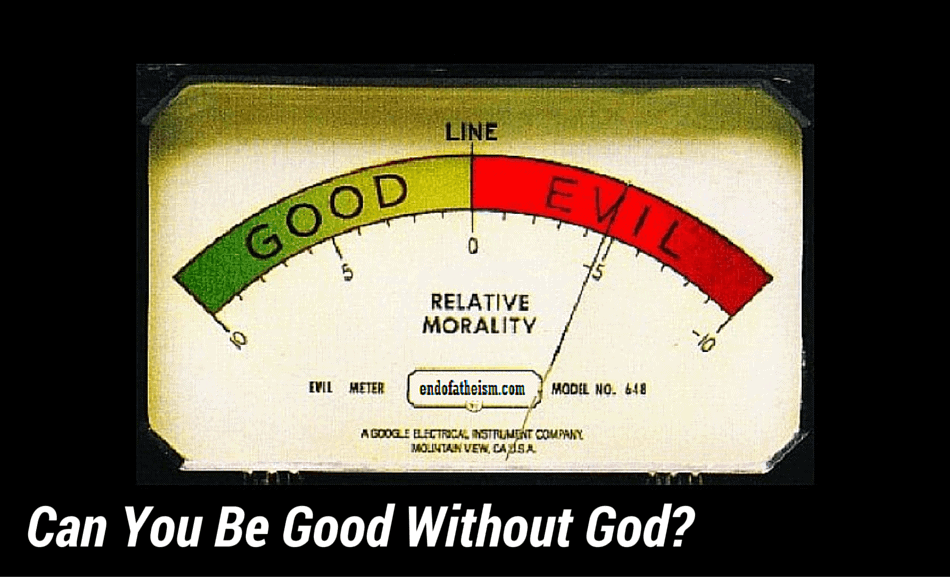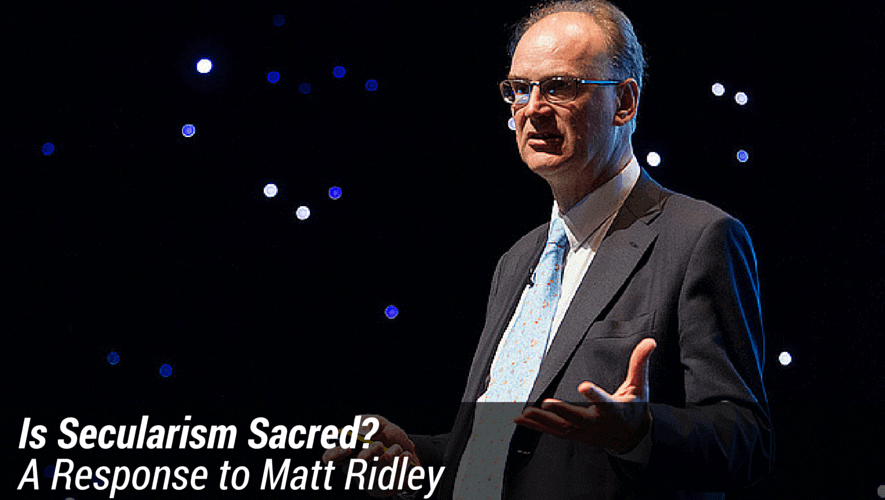Say, ‘O Allah! Originator of the heavens and the earth; Knower of the unseen and the seen; Thou alone wilt judge between Thy servants concerning that in which they differed.’
Qur’an 39:47
“A system of morality which is based on relative emotional values is a mere illusion, a thoroughly vulgar conception which has nothing sound in it and nothing true”
Socrates
Why is hurting people termed “wrong”? Ask yourself this question and you will find that it is not easy to answer. The answers you may come up with may be along the lines of “you wouldn’t want to be hurt, so why do it to others?” or “doing good to others promotes social cohesion”. However, neither of these two statements answer the question. Why then should you not hurt others, just because you wouldn’t want to be hurt? Why is social cohesion, desirable?
These may seem like absurd questions, and on some level, they are. The reason for this is because everyone, universally it seems, knows that hurting people is wrong. Even the hardened thief who has convinced himself that his thievery is justified, would feel aggrieved and wronged if someone stole from him – thus demonstrating that though he has made excuses for his own thievery, he still knows it to be wrong. Yet, if everyone knows that doing wrong is bad, and undesirable, then why do people do it at all? The answer is found in the above example – the thief who justifies his own actions to himself:
Can he, who was dead and We gave him life and made for him a light whereby he walks among men, be like him whose condition is that he is in utter darkness whence he cannot come forth? Thus have the doings of the disbelievers been made to seem fair to them.
Qur’an 6:123
Thus, a system of morality such as Humanism, which tells people simply to “be good” and “promote the wellbeing of others” not to “hurt others” without defining what “good”, “hurt” and “wellbeing” mean, is a totally meaningless system of morality. The reason for this is that everyone who does wrong, does it, believing it to be good. What is needed in a system of morality is not the end goal, but actually clear directives on which actions are right and which are wrong, covering all conceivable contexts. This is what the Qur’an in particular, claims to achieve.
A Book, the verses of which have been expounded in detail — the Qur’an in clear, eloquent language — for a people who have knowledge…
Qur’an 41:4
This is what Socrates is talking about when he refers to “relative morality” as an “illusion” and a “thoroughly vulgar conception”. Very strong words – but are they warranted? They are, because what Humanism achieves is that it makes the concept of “right” and “wrong” malleable; with each person free to define “good” and “evil” however they wish, thus giving license for every evil to be conducted under the guise of “goodness”. As pointed out above, this is precisely what happens when a person does evil or harms others; they justify it to themselves and call it “good”. Humanism is therefore no more than a formalised system of convincing yourself that what you are doing is for the betterment and wellbeing of others. People try to claim that it is religion which is utilised as a pious front for the doing of evil, and that more people do evil in the name of God than for any other reason. This may be the case but there is a difference here – people do evil in the name of God, in spite of the clear teachings of various religions on which actions are right and which are wrong. Humanism on the other hand has no teachings which could act as a buffer against the evil done in its name.
It is also worth asking the question that “what makes a good, moral person?” Hitler is famously known to have been a vegetarian, because he believed that eating animals was cruel. Ridiculous as it may sound, it demonstrates that Hitler strived – in his own mind at least – to be, what he thought of, as a good person. We find it difficult to imagine that a person who has committed and authorised such atrocities as he did, loved animals, and, no doubt, loved people also – friends and family etc. Does this make him a good, moral person? Of course it doesn’t, and the reason is obvious: loving one’s friends and families, is a natural condition that is even found among animals. Among animals too, there are many example of creatures that have shown extraordinary love and sacrifice for other animals, both of their own species, and otherwise. A simple search in YouTube would show many filmed examples. This does not make animals moral. This is because a moral quality is defined when reason and reflection are brought into play, and a person acts after deliberated thought. A mother that jumps in front of a car to save her baby has not behaved morally – she has behaved instinctively, on the basis of a natural impulse. Thus, Mirza Ghulam Ahmad, explains in the following excerpt:
When (natural qualities) are regulated and are used on their proper occasions, under the direction of reason, they acquire a moral character. Before they are controlled by reason and understanding they have not the character of moral qualities, but are natural impulses, however much they might resemble moral qualities. For instance, if a dog or lamb displays affection or docility towards its master it would not be described as moral or good-mannered. In the same way a wolf or a tiger would not be described as ill-mannered on account of its wildness. A moral state emerges after reflection and regard for time and occasion come into play.
Humanism however, conflates natural impulses with moral actions. As Humanism gives no directives and no instruction on what action is right in which context and which action is wrong in which context, it totally falls short of defining morality. It therefore does not seek to give direction to our natural impulses, thereby converting them into moral qualities, but rather seeks to term our natural impulses of love for our friends and families, and the expression of that love, as moral actions. This is totally erroneous and betrays a fundamental misunderstanding on what morality is.
Thus, a basic moral system requires two things, to make it a valid system that both makes sense and also works effectively:
1) A perspective of absolute morality – a belief that “right” and “wrong” exist outside of our own minds. In religion, “right” and “wrong” are defined by God – and it is God’s perspective that is the only perspective that matters. His perspective can be accessed both through scripture, or on a more basic level, by looking into our own conscience, to the inbuilt signposts God has given us. Humanists can also look to the human conscience, but in doing so, they are admitting that morality is a universal and absolute concept.
2) Teachings that define which actions are right in which context, and which are wrong. This is important, because, giving the end goal of “to promote happiness” is a meaningless statement, without teaching people which actions will lead to that end goal. In this regard, many religions also fall short of this ideal. Christianity, for example, which has done away with the “law” of saying which actions are right in which context and which are wrong, by accepting St. Paul’s notion that all you need is “faith” to enter heaven, and actions are not necessary, has undermined this second principle which would uphold a system of morality.
Humanism falls short on both these two principles. Humanism does not advocate that the notion of “right” or “wrong” exist outside of our own minds, nor does it give any specific teachings on which actions are right and which are wrong. Ironically however, the very existence of Humanism is a wonderful proof of the existence of God. How so? Humanism is an example of a group of people (atheists) who believe that there is no God – and therefore no absolute concept of morality, and yet feel an urging within their own hearts to unite on some common values of what is right and what is wrong, and thereby create an artificial concept of absolute morality based on the consensus of a community. They demonstrate by their actions that morality must have some degree of absoluteness, and that relative morality is – as Socrates points out – no morality at all. Thus they prove the need for an absolute perspective on morality and thus prove the need for the existence of God, for a code of morality to exist. This is all the more so because, despite their attempt at creating an artificial basis for absolute morality through common consensus as a community, they know well that just because a community endorses a particular moral action or view, does not make it right or wrong. Many communities there have been in history who collectively, with consensus, perpetrated genocide on other peoples. Does their consensus as to the rightness of their actions, change the fact that their actions were evil?
In short, humanists hear the call of their hearts of what is right and what is wrong, yet, having renounced God, they do not understand where this call is coming from, despite being unable to resist its pull. Indeed, Man admits the existence of God – Who is the basis of morality – despite professing disbelief in Him.
So set thy face to the service of religion as one devoted to God. And follow the nature made by Allah — the nature in which He has created mankind. There is no altering the creation of Allah. That is the right religion. But most men know not.
Qur’an 30:31











5
3.5
4.5